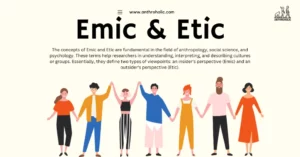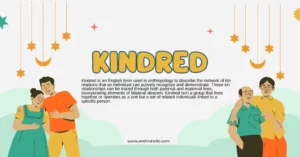Functions of Marriage
Marriage is a vital social institution which performs important justifications without which society cannot survive and continue. The functions of marriage are one of the basis to understand marriage as an institution.
Notes and Queries (1951) stated that marriage is a union between a man and a woman that ensures the children they have are recognised as the legal children of both parents (Gough, 1959).
The functions of marriage are as under:

1. Biological functions of marriage
- Marriage provides cultural groups with a measure of control over population growth by establishing strict guidelines for when it is appropriate to have children. Regulating sexual behaviour aids in the reduction of sexual competition and the negative effects associated with it. This is not to say that there are no socially sanctioned sexual unions that occur outside of marriage. Early anthropological studies revealed that the Toda people of Southern India’s Nilgiri Mountains permitted married women to have sexual relations with male priests with the husband’s permission. Mistresses were institutionalised in the Philippines by Kalinda. If a man’s wife was unable to bear children, he could have children with a mistress. His wife would assist him in selecting a partner (Evans, 2023).
- It ensures the continuation of the human race and society through channelized reproduction
- It also ensures the psychological satisfaction of having children.
2. Social functions of marriage
- Laying the groundwork for the establishment of a family and the propagation of the family, and thus society.
- Broadening the network of social relationships and thus ensuring various types of cooperation and the acquisition of new kin groups – It aids in the broadening of the web of social relationships.
- Is marriage intended to meet biological needs? If this is the case, no male can marry any female. However, this is not possible because society has established certain rules and regulations for selecting mates.
- Marriage allows all cultural bodies to exert some control over overpopulation.
- It broadens to include dictated rules about when it is appropriate to have children.
- Child enculturation – the longest period of dependence in a human infant. Children begin to learn their gender roles and other cultural norms under the protection of marriage. Marriage establishes who is responsible for children. It legitimises children by establishing their birth rights socially (Evans, 2023).
3. Legal functions of marriage
- For providing legitimacy to offspring.
- Ensuring the rights of partners in relation to one another, as well as ensuring the rights and defining the relationships of children within a community (Britannica).
4. Emotional functions of marriage
- Providing a framework for psychological and emotional cohesion between the pair and the bride’s and the groom’s families.
5. Economic functions of marriage
- Labour division based on sex to promote economic equality between men and women.
- Marriage offers the structure within which people’s needs are fulfilled, including those for safety, food, clothing, and shelter. People are made conscious of who they are accountable to financially and morally through the institution of marriage (Evans, 2023).
- Financial authority over the assets and labour of the spouse.
Conclusion –
Marriage is a multi-level bond between two people that includes obligations from person to person, family to family, and couple to state. Every society views marriage as a comparatively permanent connection between people, to the point where in some places it is practically irrecoverable. Marriage is the institution best suited for rearing and socialising the next generation of members because it offers the stability that comes with a lifetime commitment to staying together. This is important if the rules, values, and goals of the community are to be upheld and followed as well as the community’s own rules and regulations.
References
[1] Bonvillain, Nancy. 2010. Cultural Anthropology, 2nd edition. Boston: Pearson Education, Inc.
[2] Britannica, T. Editors of Encyclopaedia (2023, February 3). Marriage. Encyclopedia Britannica. https://www.britannica.com/topic/marriage . Accessed on 01 March 2023.
[3] Burke, R. J., & Weir, T. (1977). Husband-Wife Helping-Relationships: The “Mental Hygiene” Function in Marriage. Psychological Reports, 40(3), 911–925. https://doi.org/10.2466/pr0.1977.40.3.911 . Accessed on 01 March 2023.
[4] Coontz, S. (2004). The World Historical Transformation of Marriage. Journal of Marriage and Family, 66(4), 974–979. http://www.jstor.org/stable/3600171 . Accessed on 01 March 2023.
[5] Doshi S.L, Jain P.C. (2001). Social Anthropology. Rawat Publications; Jaipur, 2019.
[6] Ember, Carol R. and Melvin Ember. 2011. Cultural Anthropology, 13th edition. Boston: Pearson Education, Inc.
[7] Evans. (2023). Cultural Anthropology. LibreTexts. https://socialsci.libretexts.org/Bookshelves/Anthropology/Cultural_Anthropology/Book%3A_Cultural_Anthropology_(Evans)/09%3A_Marriage_and_Family/9.01%3A_Functions_of_Marriage . Accessed on 01 March 2023.
[8] Gough, E. K. (1959). The Nayars and the Definition of Marriage. The Journal of the Royal Anthropological Institute of Great Britain and Ireland, 89(1), 23–34. https://doi.org/10.2307/2844434 . Accessed on 01 March 2023.
[9] Gove, W. R., Hughes, M., & Style, C. B. (1983). Does Marriage Have Positive Effects on the Psychological Well-Being of the Individual? Journal of Health and Social Behavior, 24(2), 122–131. https://doi.org/10.2307/2136639 . Accessed on 01 March 2023.
[10] Mair Lucy. (1965). An Introduction to Social Anthropology. Oxford University Press; Oxford, 1972.
[11] Waite, L.J. (2005). Marriage and Family. In: Poston, D.L., Micklin, M. (eds) Handbook of Population. Handbooks of Sociology and Social Research. Springer, Boston, MA. https://doi.org/10.1007/0-387-23106-4_4 . Accessed on 01 March 2023.




